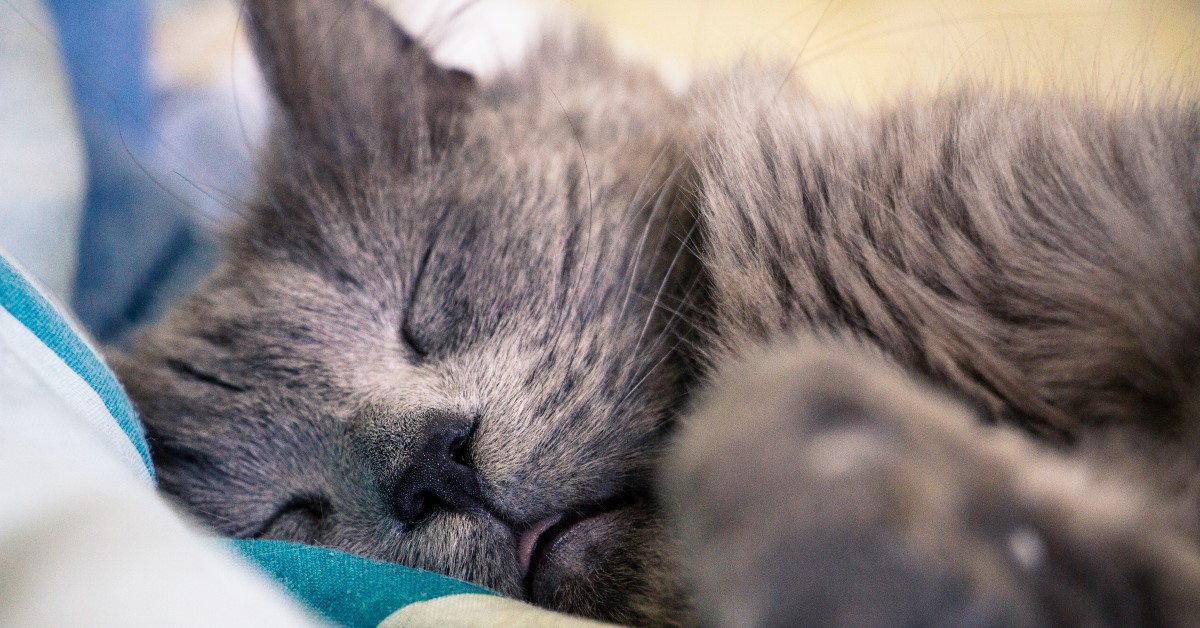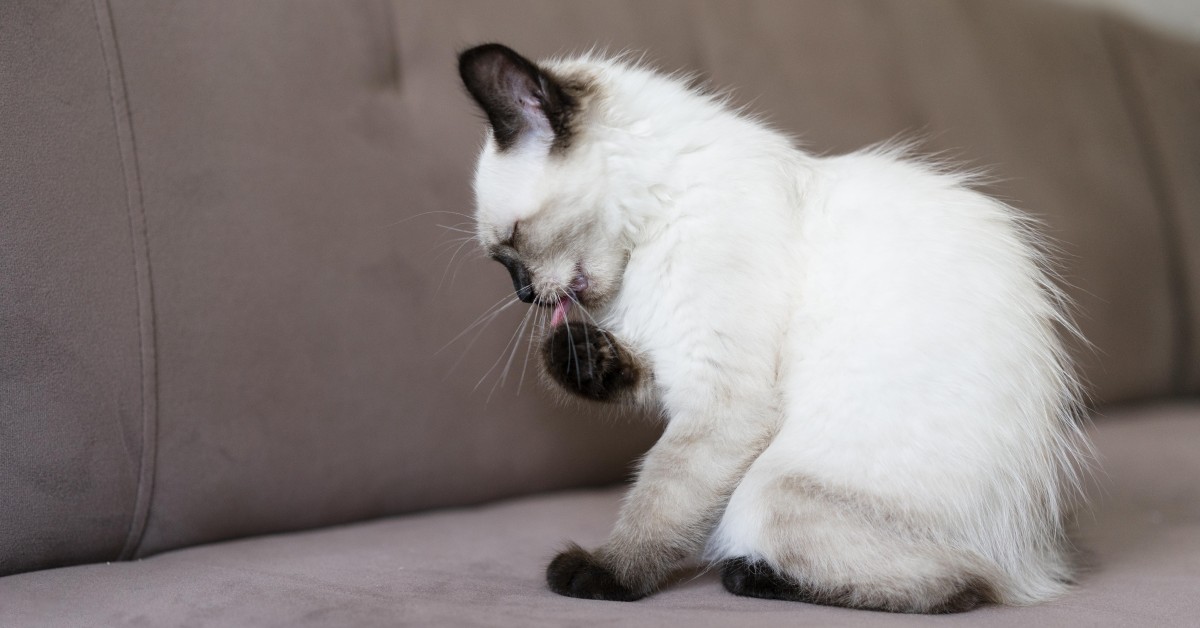Feline Immunodeficiency Virus in Cats
Understanding feline immunodeficiency virus (FIV) and its impact on your cat’s health can help your cat live a happier, healthier life.

Finding out that your feline friend has an incurable disease like feline immunodeficiency virus (FIV) can be heartbreaking. However, it’s important to know that cats with this condition can live long, healthy lives with proper care. In North America, about 2.5 to 5 percent of all healthy cats are infected with feline immunodeficiency virus (FIV). While any cat can contract the infection, unneutered male cats with outdoor access are at the highest risk.
If your cat has been recently diagnosed with FIV or you suspect that your pet may have acquired an infection, it’s important to act fast. Let’s take a closer look at what FIV in cats entails, what you can expect after a FIV diagnosis, and how to properly treat and manage your pet’s condition.
What Is Feline Immunodeficiency Virus (FIV)?
Feline immunodeficiency virus is a viral infection that primarily affects cats. This common condition attacks and weakens the animal’s immune system, similar to HIV in humans, which makes them more susceptible to other infections and diseases.
While getting a diagnosis of FIV may seem scary to pet owners, a diagnosis in an otherwise healthy cat is not usually a medical emergency. Although there is no definitive cure for the disease, infected cats can often live healthy lives for many years if the condition is properly managed.
How Does FIV Affect Cats?
FIV specifically targets a type of white blood cell in the body known as CD4+ T-lymphocytes, which is used to coordinate an immune response. After entering the body, the virus attaches to these cells and integrates its genetic material into the cat’s DNA. Over time, immune cells are destroyed, along with the cat’s ability to fight off infections.
What are FIV Symptoms?
An FIV infection can manifest in a number of ways as the condition progresses over time. Your cat may exhibit the following symptoms:
Early Symptoms:
- Lethargy
- Swollen lymph nodes
- Fever
- Behavior changes, such as irritability
Advanced Symptoms:
- Chronic diarrhea
- Weight loss
- Dental issues
- Recurrent infections that may get harder to treat
How Is FIV Transmitted?
FIV is primarily transmitted through bite wounds and similar aggressive encounters between animals. This is why unneutered male cats are more likely to contract this infection, as they tend to engage in fights more often than their female counterparts. The most common transmission methods include:
- Bite Wounds: FIV can be transmitted from one animal to another when an infected cat bites another cat, causing the infected saliva to enter the bloodstream.
- Maternal Transmission: While not as common, FIV can be passed from an infected mother cat down to her kittens, either during pregnancy or while nursing.
- Aggressive Interactions: Scratches and similar injuries from an infected cat can cause the virus to spread, especially when saliva or other bodily fluids are involved.
- Other Routes: While rare, FIV can sometimes be spread through casual contact, such as a shared water or food bowl. However, the infection is not transmissible to humans or other animal species.
How Is FIV Diagnosed?
Diagnosing FIV in cats generally involves several steps, starting with a veterinary examination. By conducting a physical exam, your vet can assess your cat’s overall physical health, look for possible symptoms of FIV, and identify other health issues. If FIV is suspected, your vet may order a blood test, usually either an enzyme-linked immunosorbent assay (ELISA) or a Western blot test.
How Is FIV Treated and Managed?
There is currently no cure for FIV, which means it must be effectively treated and managed to help infected cats lead healthy and comfortable lives. Management generally involves regular vet check-ups to monitor the animal’s health and catch possible secondary infections early. Regular blood tests can help assess the cat’s immune system function and detect other health issues.
Symptomatic treatment for FIV may include medications to treat infections or manage pain. Anti-inflammatory drugs, antibiotics, and antiviral medications may be prescribed as needed. Your vet may also recommend nutritional support to help your pet maintain overall health.
How Can FIV Be Prevented?
Preventing FIV can be challenging, especially for cats that spend time outdoors. Spaying or neutering your pet is the first step towards reducing aggressive behaviors that can increase your cat’s risk of contracting the infection. Keeping your cat indoors as much as possible also reduces the potential of exposure to infected cats and aggressive encounters with other animals.
When outdoors, consider supervising your pet or keep your cat in an enclosed area where there is little to no risk of encounters with other cats. When introducing new cats into the household, ensure that they have first been tested for FIV. You’ll also want to have regular health check-ups with your vet and ensure that your cat is up-to-date on all of its vaccinations.
Keeping Your FIV-Positive Cat Healthy
Feline immunodeficiency virus is a serious condition that requires pet owners to be understanding and proactive in their pet’s short-term and long-term care. While no cure yet exists for FIV, you can help keep your pet healthy and happy with regular veterinary care, a balanced diet, and a supportive environment. Continue to educate yourself and your family about FIV and take preventive actions to keep your pet safe, such as limiting outdoor time. With proper care, attention, and support, your FIV-positive cat can thrive for many years.
Ready to start saving money on pet wellness care?
Then take a look at Mint Wellness, the pet wellness plan that provides fast reimbursement on routine pet care. Save on vaccinations, wellness exams, preventatives, dental, and more!
Learn More


